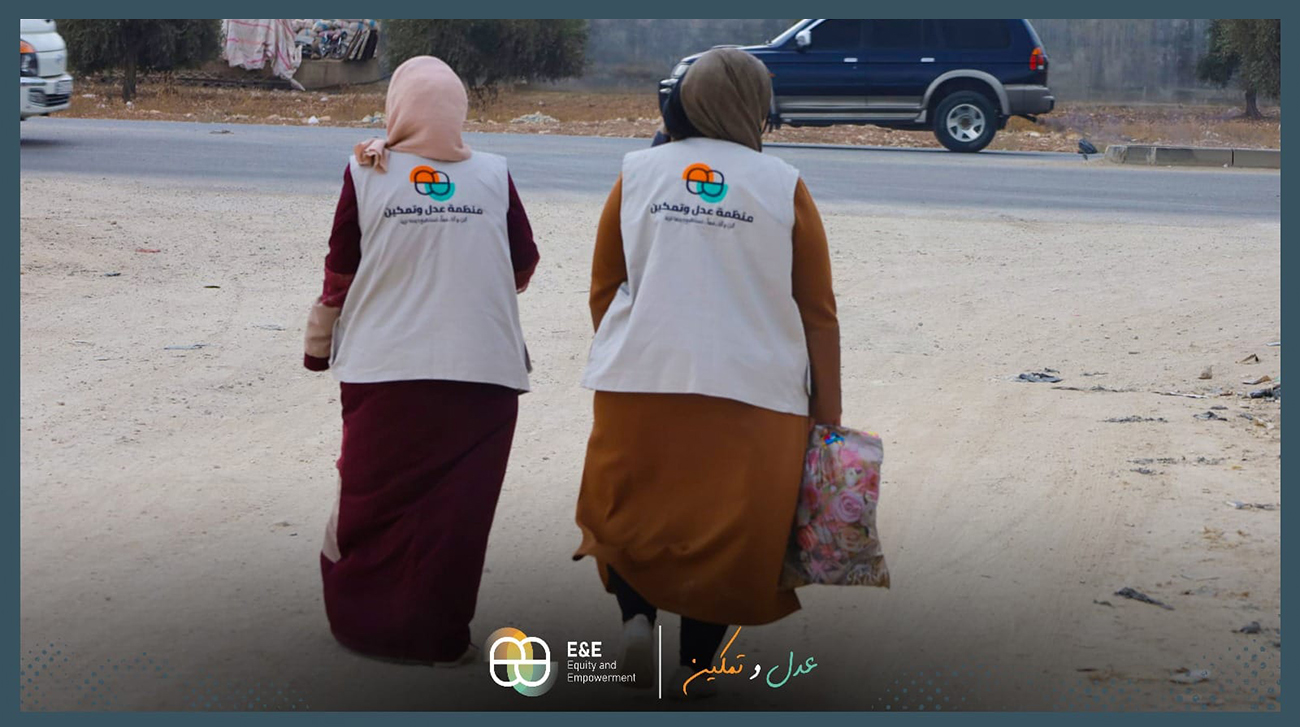
In the aftermath of the devastating earthquake that struck northwest Syria, the need for humanitarian aid has become more urgent than ever. The project “Support for Women Affected by the Earthquake in Northwest Syria,” implemented in Kafr Yahmul and Jisr al-Shughur, aims to address both the immediate and long-term needs of women affected by this natural disaster. Running from May 1, 2024, to October 31, 2024, the project seeks to meet humanitarian needs, enhance the psychological and economic resilience of the affected women, and foster social cohesion within the community.
The earthquake in northwest Syria has exacerbated already difficult conditions in a region that has been struggling with conflict and displacement for over a decade. Women, who often bear the brunt of such crises, are particularly vulnerable. They face unique challenges, including an increased risk of gender-based violence, economic instability, and mental health issues. Addressing these challenges is critical not only for the well-being of women but also for the overall recovery and stability of the community.
The project’s primary objectives are threefold:
1- Providing Humanitarian Aid:
Shelter and Basic Needs: Distribute tents, blankets, food packages, and hygiene kits to ensure the immediate survival needs are met in both Kafr Yahmul and Jisr al-Shughur, including:
2- Psychological Support:
3- Economic Empowerment:
Skills Training: Offer vocational training programs to help women develop new skills that can lead to income-generating activities. The trainings included:
4- Social Cohesion Activities:
By the end of the project, it is expected that:
The “Support for Women Affected by the Earthquake in Northwest Syria” project is a vital initiative aimed at addressing the multifaceted needs of women in the aftermath of a devastating natural disaster. By focusing on humanitarian aid, psychological support, economic empowerment, and social cohesion, the project not only helps women recover but also lays the foundation for a more resilient and united community. This comprehensive approach is essential for promoting long-term recovery and stability in a region that has faced unprecedented challenges.
In the aftermath of the devastating earthquake that struck northwest Syria, the need for humanitarian aid has become more urgent than ever. The project “Support for Women Affected by the Earthquake in Northwest Syria,” implemented in Kafr Yahmul and Jisr al-Shughur, aims to address both the immediate and long-term needs of women affected by this natural disaster. Running from May 1, 2024, to October 31, 2024, the project seeks to meet humanitarian needs, enhance the psychological and economic resilience of the affected women, and foster social cohesion within the community.
The earthquake in northwest Syria has exacerbated already difficult conditions in a region that has been struggling with conflict and displacement for over a decade. Women, who often bear the brunt of such crises, are particularly vulnerable. They face unique challenges, including an increased risk of gender-based violence, economic instability, and mental health issues. Addressing these challenges is critical not only for the well-being of women but also for the overall recovery and stability of the community.
The project’s primary objectives are threefold:
1- Providing Humanitarian Aid:
Shelter and Basic Needs: Distribute tents, blankets, food packages, and hygiene kits to ensure the immediate survival needs are met in both Kafr Yahmul and Jisr al-Shughur, including:
2- Psychological Support:
3- Economic Empowerment:
Skills Training: Offer vocational training programs to help women develop new skills that can lead to income-generating activities. The trainings included:
4- Social Cohesion Activities:
By the end of the project, it is expected that:
The “Support for Women Affected by the Earthquake in Northwest Syria” project is a vital initiative aimed at addressing the multifaceted needs of women in the aftermath of a devastating natural disaster. By focusing on humanitarian aid, psychological support, economic empowerment, and social cohesion, the project not only helps women recover but also lays the foundation for a more resilient and united community. This comprehensive approach is essential for promoting long-term recovery and stability in a region that has faced unprecedented challenges.